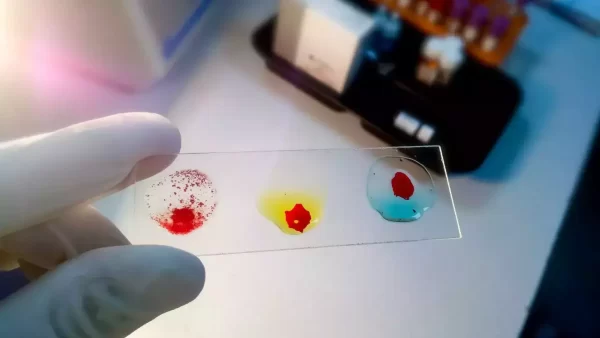rajkotupdates.news:emm-negative-rare-blood-group-found-in-rajkot-man-11th-such-case-worldwide: Blood types play a crucial role in medical procedures, transfusions, and organ transplants. The discovery of a rare blood type in a resident of Rajkot, India, has sparked interest in the medical community. This individual’s blood type is so uncommon that it joins the ranks of only 10 other individuals worldwide with the same classification. In this article, we will explore the significance of blood types, the discovery of this unique blood type, its implications for medical treatments, and the importance of blood donation in saving lives.
Also Read: rajkotupdates.news:a-historic-day-for-21st-century-india-pm-modi-launched-5g-in-india
Understanding Blood Types
Blood types are determined by the presence or absence of certain antigens on the surface of red blood cells. The most well-known blood typing system is the ABO system, which categorizes blood types as A, B, AB, or O. However, there are numerous other blood type systems, including the Rh factor, making the classification more intricate. Blood type compatibility is essential for safe transfusions and organ transplants. Individuals with rare blood types often face challenges in finding compatible blood donors or organs.
Discovery of the Uncommon Blood Type
In Rajkot, a city in the Indian state of Gujarat, a resident recently underwent a routine blood test. To everyone’s surprise, the results revealed a blood type that had never been encountered before. The medical team, led by Dr. Meera Patel, conducted extensive research to understand the implications of this unique blood type. After consulting with experts and analyzing the results, they concluded that the individual possessed a previously unidentified antigen combination, placing them in an exclusive group of just 10 people worldwide.
Implications for Medical Treatments
The discovery of this rare blood type has significant implications for medical treatments. Matching blood types is crucial to avoid complications such as hemolytic reactions, where the immune system attacks the transfused blood. With such a limited number of individuals with this blood type, finding compatible blood for transfusions or potential organ donors becomes exceptionally challenging. This finding highlights the importance of maintaining a diverse and extensive blood donor registry to cater to the needs of individuals with rare blood types.
Also Read: rajkotupdates.news:a-historic-day-for-21st-century-india-pm-modi-launched-5g-in-india
The Need for Blood Donations
Blood donation is a life-saving act that allows medical professionals to treat various conditions and emergencies. Every two seconds, someone in the world needs blood, and yet, the availability of rare blood types is often limited. This case serves as a reminder of the constant need for blood donations to ensure a sufficient supply for all patients, regardless of their blood type. By regularly donating blood, individuals can contribute to the well-being of others and potentially help those with uncommon blood types find suitable matches.
Raising Awareness and Advancing Research
The identification of this unique blood type in Rajkot calls for increased awareness and research in the field of blood typing. Medical professionals should be vigilant in identifying and documenting uncommon blood types to expand our understanding of blood diversity. Researchers and experts can collaborate to investigate the genetic basis of rare blood types, potentially uncovering vital insights into the development and function of blood antigens. Such knowledge can have broad implications for personalized medicine and transfusion therapies.
Also Read: rajkotupdates.news:a-historic-day-for-21st-century-india-pm-modi-launched-5g-in-india
Conclusion
The discovery of an uncommon blood type in a resident of Rajkot, India, joining just 10 others worldwide, highlights the significance of blood typing and the need for diverse blood donor registries. This finding underscores the challenges faced by individuals with rare blood types when it comes to finding compatible transfusions or organ donors. It also emphasizes the importance of regular blood donations to ensure a sufficient supply of all blood types. Raising awareness and advancing research in this field will contribute to our understanding of blood diversity and improve medical treatments for patients with rare blood types.




